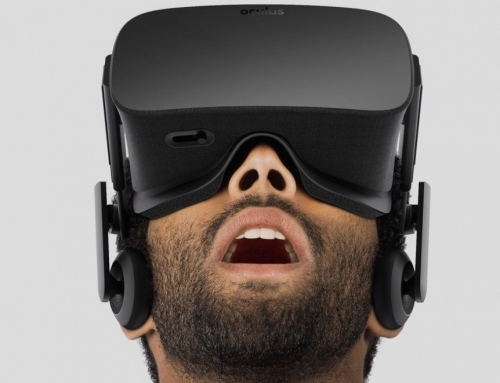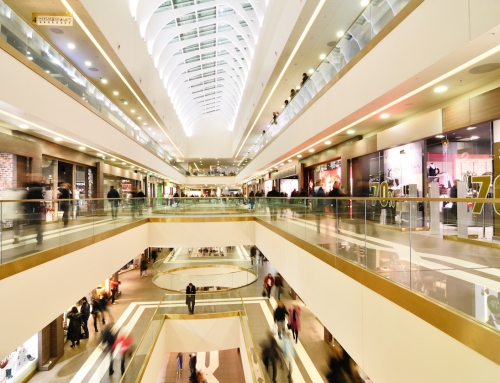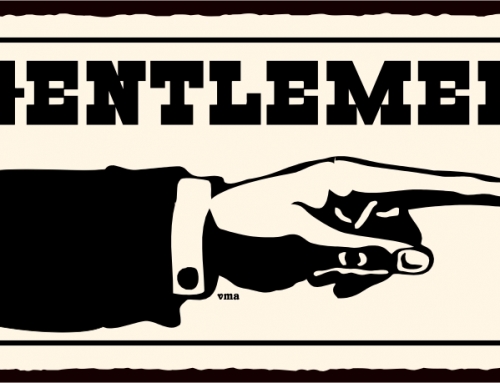Personalisation, Customisation and giving consumers what they want.
Bespoke products are not new, they have existed for hundreds of years mostly within the luxury market sectors such as the automotive industry or personal tailoring services and couture fashion. This level of exclusivity came at a price that was unattainable for the average consumer.
Fast forward and rapid advances in technology have now made affordable personalised products and services accessible to the mass market. Research conducted by Deloitte shows 20% of shoppers are also willing to pay a premium for these personalised products or services.
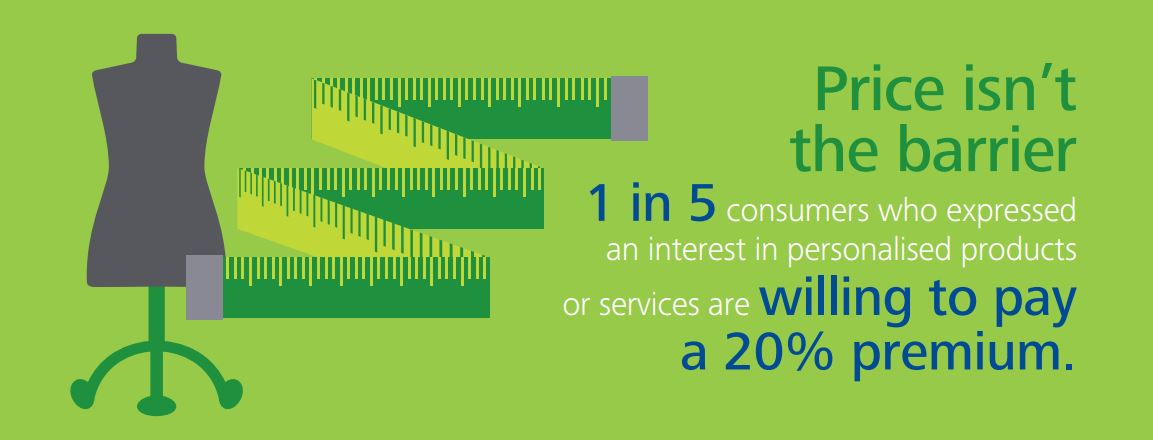
When to Give Up Personal Data
The digital age has brought about a shift in power that favours consumers who now call the shots, demanding the opportunity to co-create the products they consume, in return for their personal information.
According to The Deloitte Consumer Review, around 65% of us are still concerned about the amount information companies hold on us. I don’t think the issue is privacy anymore, it’s the poorly targeted junk we receive that’s bothersome to most. The key take home message for retailers is authenticity, consumers don’t want to be bombarded with irrelevant information and we’re loathed to part with our personal data unless we can see a true value in the exchange. By handing over our information, we trust companies to deliver a more targeted and unique experience, quid pro quo.
Our data provides businesses with a unique insight into our shopping behaviour, allowing for a more bespoke range of products and/or services leading to a reduction in manufacturing and marketing costs. It’s a win-win situation for consumers and retailers. And, when retailers offer up the right content at the right time consumers are more likely to respond positively and more likely to want to repeat the experience.
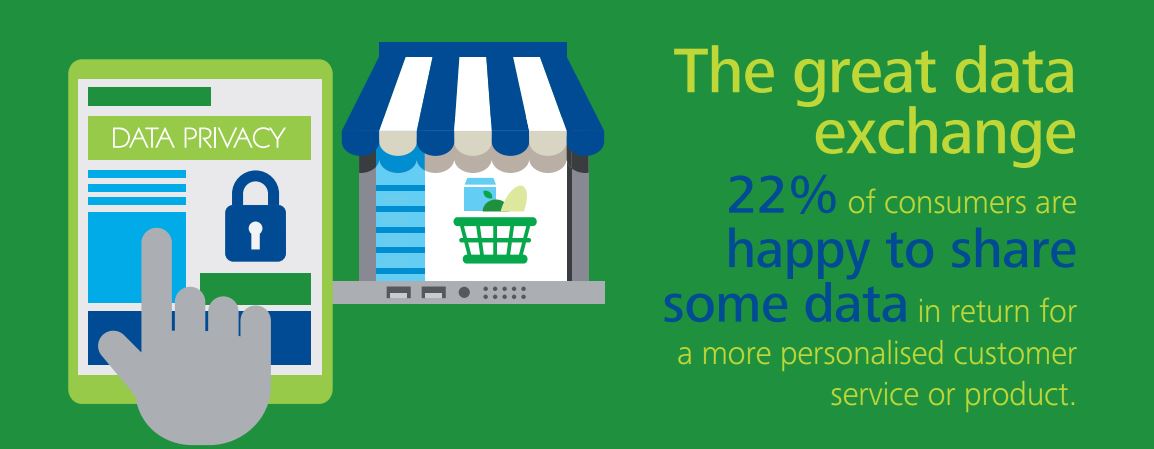
Consumers are Expert Critics and Product Curators
Think about it, we all customise our stuff on a daily basis; from our food and beverage choices to our clothing, holidays and music playlists, it’s second nature! We personalise our pizzas and Coke bottles, use loyalty apps allowing us to skip the queue for our morning coffee by ordering and paying in advance. We log into highly personalised account pages when shopping online that make personal recommendations based on our previous habits, then we customise our Nike and Converse shoes, or drag and drop flowers to create the perfect bouquet with Interflora. We can even design and 3D print our own products! Brands that take the lead in offering an edited selection of the very best tailor-made goods and services have the leading edge because consumers don’t want too much choice and we expect to pick apart any suggested packages, choosing only elements we want to keep and discarding the rest.
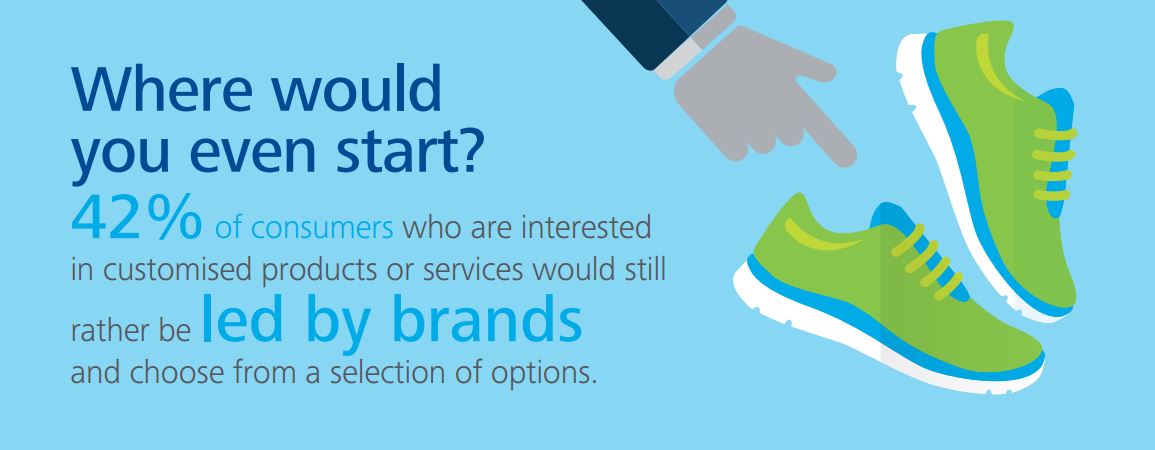
The demand for customisation and personalisation shows no sign of slowing. Consumers want to feel special, we want to be treated as partners and we want valuable, authentic experiences in return for our handing over our information and retailers that work hard to deliver that will win our loyalty.
Personalisation and Customisation might be the marketing buzzwords of the moment but retailers are investing heavily to secure and retain our customer loyalty. They need to review both their online and in-store strategy, ensuring both are aligned to future-proof their business. iBeacons are being trialled in UK shopping centres for a more engaging and immersive retail experience after 50% of consumers said they would embrace the technology. Retailers can track the customer journey across all platforms, simultaneously gathering data on shopper habits in-store and online by linking their personal profiles. Customer service will improve significantly as a result and with dedicated shopping centre apps, social media and geofilter technology another level of interaction with consumers is possible.
Obviously, it’s a huge challenge to effectively bring together all of this big data but knowledge of consumer behaviour is improving and retailers are constantly adapting their responses to meet our demands. Getting it right will present an opportunity for retailers to stand out significantly from the competition and businesses not offering consumers some level of personalisation or customisation risk losing revenue.



